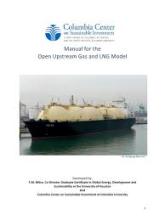Land Library Search
Through our robust search engine, you can search for any item of the over 73,000 highly curated resources in the Land Library.
If you would like to find an overview of what is possible, feel free to peruse the Search Guide.
/ library resources
Showing items 1 through 9 of 23.This note proves recommendations for governments, international actors, and mining advocates who seek to optimize the value of green energy mineral reserves, to ensure that expectations for green energy materials do not replace careful planning, impact assessment, and allocation of risks, as well
The Land Use Bill objective is to guarantee the continued existence of communal and family land in accordance with the culture and tradition of the people of Cross River State/Nigeria in so far as the culture and tradition are in accordance with equity, natural justice and good conscience.
Land use involves a diverse range of perspectives and cannot be resolved by any single stakeholder working alone. A process like Transformative Scenario Planning (TSP) can bring together conflicting opinions and help people to start thinking differently.
A severe outbreak of Côte d’Ivoire lethal yellowing disease (CILY) has been wreaking havoc throughout coconut farms since 2013.
A widely held belief in Bobira is that private land is more fertile than communal land. What came to light through the workshop information sharing is that there is no difference in the type of soil in villages compared to freehold land.
This manual has been developed for training purposes. It models the gas value chain from the upstream project to the use of gas under the form of LPG, LNG or as feedstock for local industrial or power generation uses.
This paper provides guidance on how to integrate consultation and FPIC principles into investor-state contract negotiations to actively involve project-affected communities and better safeguard their land rights and human rights.
Public lands accounted for 80% of the country area until a decade ago.
A proposed massive expansion of a petrochemical complex in South Durban’s port area has come under criticism for both economic and environmental violence. The recent history of cities becoming hyperactive export platforms is not merely a function of globalisation.









